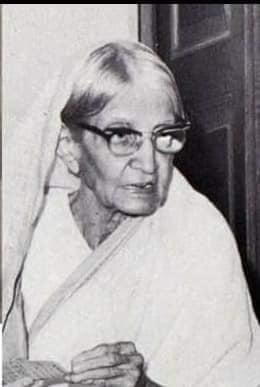1891 - 1984
By: Mv | Date Added:

Dr. Jerusha Jhirad, the first female Indian Jewish physician, was a distinguished gynecologist in Bombay. She was a member of the Bene Israel Jewish community. Born on March 21, 1891, in the state of Mysore, Dr. Jhirad was of Jewish origin. From the age of eleven, she educated herself on merit scholarships at school and right through her college career at Grant Medical College, Bombay. She graduated in 1912 and set up general practice. She was the first woman to be awarded the Government of India scholarship to study in the United Kingdom, where she earned an M.D. in Obstetrics and Gynecology from the University of London. The First World War broke out in 1914 soon after her arrival in London. One of the conditions for admission to MD (Ob-Gyn), University of London was at least a 6 months’ residential post. An Indian woman could hardly get this post, but due to the outbreak of the War, men had to be enlisted, and this provided her the much-longed-for opportunity. She was taken on at the Elizabeth Garrett-Anderson Hospital, founded by the first medical woman in the UK. She served there for nearly 2 years, gaining good practical experience with enough opportunities for operative work. This enabled her to finally apply for her MD, which she took in 1919, a real step toward realizing her childhood dream. However, on her return to Bombay, she found no openings at the Cama Hospital. After a short consulting practice in Bombay, she took a position at the Lady Hardinge Hospital, New Delhi, and then went over to Bangalore at the invitation of the Senior Surgeon. She returned to Bombay in 1925 and was appointed Honorary Surgeon at the Cama Hospital. Three years later, in 1928, Dr. Jhirad was selected as Medical Officer of the Hospital. A Founder Member of the Bombay Obstetric and Gynaecological Society, Dr. Jhirad was made the Society’s 8th President in 1948. Throughout her active days, she cooperated with her colleagues in the Bombay Society as also at the Federation of Obstetric and Gynaecological Societies of India (FOGSI) to develop and to keep up its academic standards. Dr. Jhirad presided over the 6th All India Obstetric and Gynaecological Congress held at Madras in 1950, in which it was decided to form the Federation of Obstetric and Gynaecological Societies of India (FOGSI), as also to start the Journal of Obstetrics and Gynaecology of India. Dr. Jhirad was elected the first President of the Federation, and was, at the same time, requested to be the Editor of the journal. She retired as Editor in 1968. In appreciation of her services as Editor, the Federation decided to honour her as the Founder Editor. Much of Dr. Jhirad’s interest in her active days was concentrated on Maternal and Child Welfare. She took charge of the Cama Hospital, Bombay. Antenatal, postnatal, and child welfare clinics were well organized, and the investigation of cases of sterility systematized. Honorary posts, with full responsibility for practical work were increased as also the number of resident posts. Postgraduate teaching was organized to give practical experience to Obstetrics and Gynecology. To fulfil this objective, a hostel for postgraduates, the first one in Bombay at the time, was opened. This encouraged women postgraduates from all over India to avail of this facility. Dr. Jhirad has been an Examiner for MD at Madras, Bombay, and Poona Universities for many years. She has worked on the Senate of Universities of Bombay and Poona as well as on the Syndicate in Bombay. She was invited by the Medical Council of India to inspect facilities for training in Obstetrics and Gynecology at the Universities of East Punjab and Calcutta. She served as Chairperson of the Committee for Maternal and Child Welfare IRFA (now ICMR) for some years. She carried out a statistical inquiry into Maternal Mortality in Bombay in 1937–1938, under IRFA and was also invited to deliver Orations at Bombay, Baroda, and Calcutta, the last of these being the Dr. Dossibai Dadabhoy Memorial Oration. She expanded and improved the Cama and Albless Hospitals for Women and Children in Bombay during her tenure as their Superintendent from 1928 to l949 and served as president of the Gynaecological and Obstetrics Society. For these achievements and her efforts to improve medical education in India and advance the cause of woman doctors, she was awarded the MBE (Member of the British Empire) (Civil) by the British and, in l966, the coveted title Padma Shri by the government of India. Dr. Jhirad was also highly appreciated by her community for founding the Stree Mandal (Women’s Association) in 1913, providing a place where women could meet and exchange their ideas. It also offered classes in Marathi (the local language), cooking, needlework and dressmaking to girls who had not completed their education, and promoted the study of Bible and religion. In 1925, Dr. Jhirad founded the Jewish Religious Union, which was linked with the World Union of Progressive Judaism and provided the only Reform, English-speaking alternative to the Orthodox synagogues in Bombay. As such, it attracted the upper middle class of Bene Israel. In 1975, Dr. Jhirad wrote a short autobiography. The Jhirad crater on Venus is named in her honor.
click hereShare your thoughts on this story with us. Your comments will not be made public.
Email
Copyright ©2016 - Design By Bureau Blank